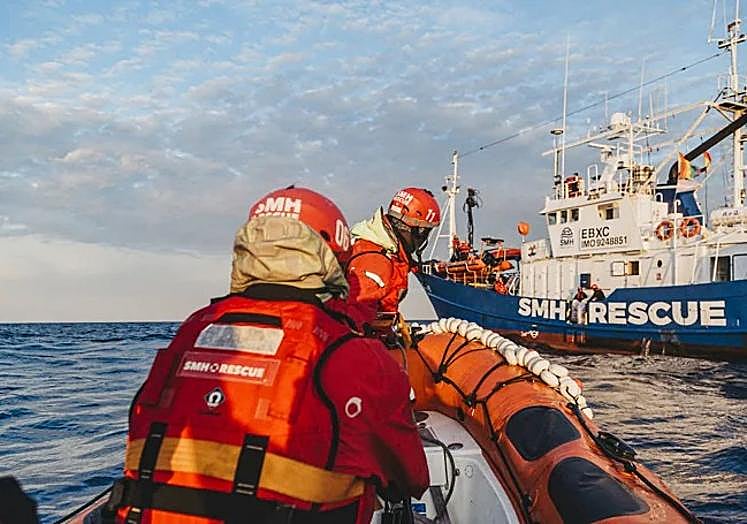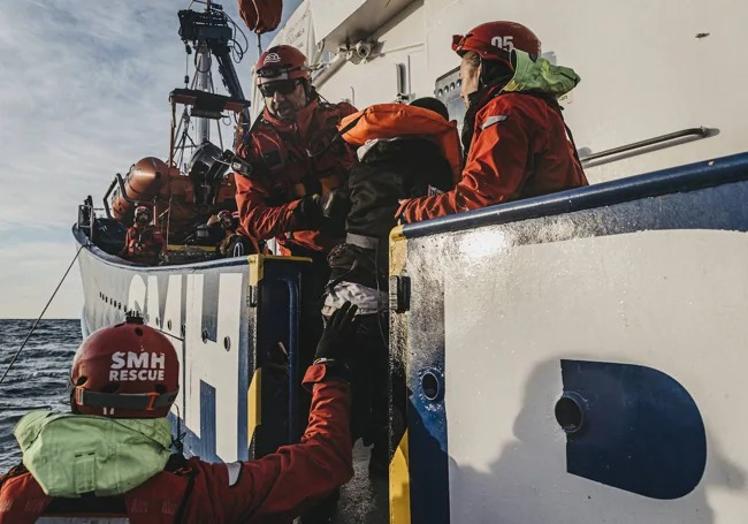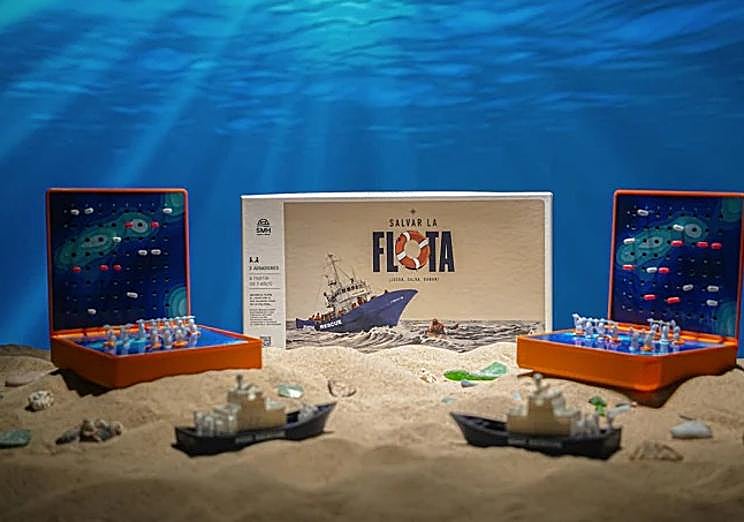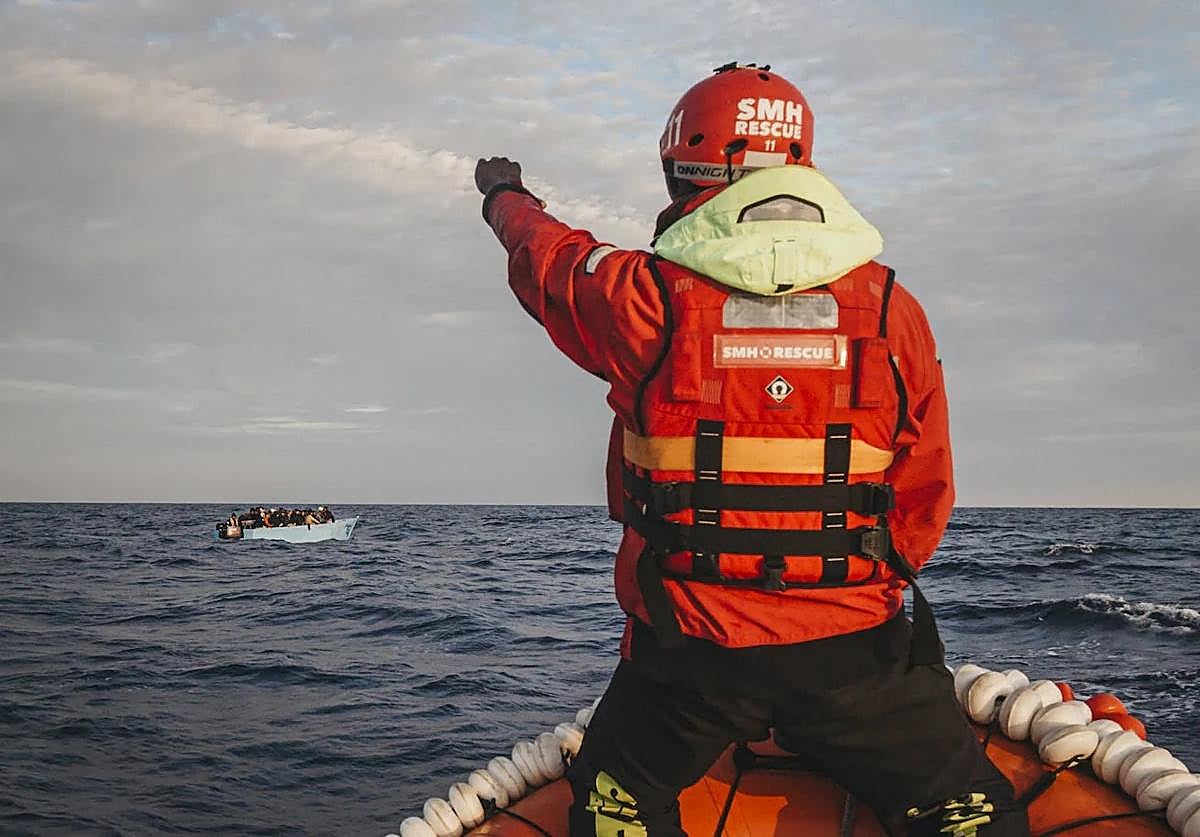Saving lives in the Mediterranean for 2,000 euros a day
Boats like the Aita Mari set sail to rescue migrants in danger of capsizing, but European border policies are making their missions increasingly costly
When he sets sail in the Aita Mari, Captain Simón Vidal heads for the central Mediterranean, between Africa and Europe. "We never know what might happen," says Vidal, who has been at the helm of the Salvamento Marítimo Humanitario (SMH) boat for three years, a small Spanish organisation that rescues migrants who take to the water in small flimsy boats.
In the most recent mission, the NGO's twelfth, they rescued 43 people, whose journeys had begun in Egypt, Sudan and Bangladesh. They faced waves over a metre high, were dehydrated and tired.
"The sea is huge but sadly there are countless cases in that area and we locate them by the 'mayday' warnings," explains Vidal, 36. "Their journey is risky; they have no safety systems or life jackets. They can capsize."
Alerts are sent by email and are addressed to the civilian fleet and to the authorities of the nearest countries. "We operate when there is administrative silence. For example, Malta and Libya never reply and if Italy does not reply, we initiate the protocol to go. Only when we have already made the rescue do they reply to assign the ports to us."
Rescued migrants are usually disembarked in Italy, but increasingly at more distant destinations. The Aita Mari, which measures 31 metres by eight, used to dock in Sicily and now has to sail an additional 120 kilometres. "That's four more days at sea," Vidal explains.

Zoom

The Italian government's distant port policy makes relief missions more expensive. On voyages of 45 days each - plus three weeks of preparation in port - with 14 crew members, eight of whom are professional sailors, and resources for dozens of extra people, each day at sea costs around 2,000 euros, says Íñigo Mijangos, coordinator of SMH.
Counting time in port, he calculates that around 600,000 euros a year is required, including the salaries of the sailors and maintenance work with updating and overhauling equipment. The money comes from public bodies (70%) and the rest comes from donations, merchandising sales and agreements with companies, says the NGO. "The project's funds are very tight," says Mijangos.
Daunting task
Since sailing on humanitarian expeditions on the Aita Mari, Captain Vidal has not seen any lives lost. But he has had difficult rescues. "Hearing the choking screams of people in the water sticks in your mind," he confesses, recalling a "very grey day" when they found seven boats with some 300 people. "We couldn't take them all in and it was overwhelming." For eight hours they took 172 women, children and men and waited with the rest, who were still in their small boats, for four hours for the Italian coastguard to arrive.

Zoom

The approach is a crucial moment in this aid. Desperation can lead to ill-advised moves. "The first thing is to ask them to remain calm," says Vidal, who has a Senegalese sailor, Edu, who speaks several African languages as well as English and French.
"It all depends on the modulation of the voice, the specific instructions and the non-verbal attitude. They pull up the boat, sometimes two, and hand out life jackets. With safety assured, they put them on the boats and from there on to the mother ship, which is kept at a good distance away. "If they see it too close, some of them think they can swim to it, even if they don't know how, and the others imitate them out of fear."
Reward
The conversion of the Aita Mari, which was used for inshore fishing, is "sturdy", says Mijangos. "Coexistence is hard. There are bad days," he admits. They try to make those rescued "feel like people".
"There is a space in the stern with an awning to protect them from the weather. If the group is larger, we try to keep them in areas that are as warm and sheltered as possible, although they are no longer as comfortable."

Zoom

Migrants are not supposed to be on board for more than a few hours, but their stay is often extended by several days. "They want us to use up our economic resources," insists Mijangos.
On those days, they are provided with food, blankets, internet minutes to communicate with their families and showers. The reward: "You just have to look at people's faces and see the gratitude alongside their suffering," says Vidal. "But I just do what I think is right." SMH now plans to do more rescues, up from three missions a year.

